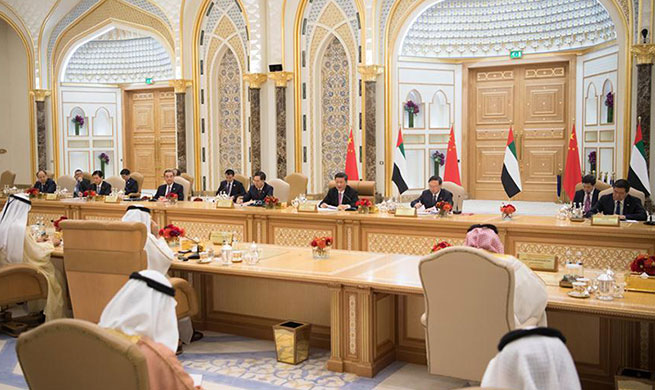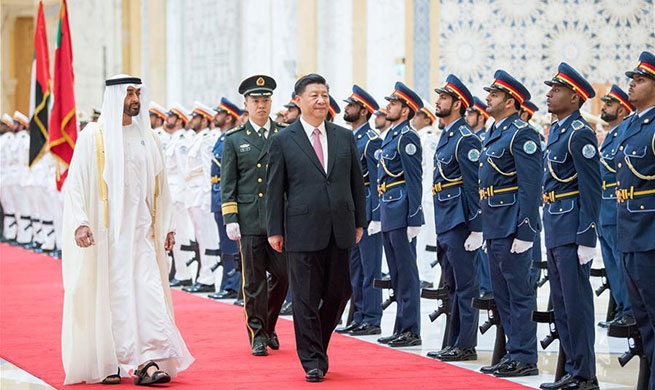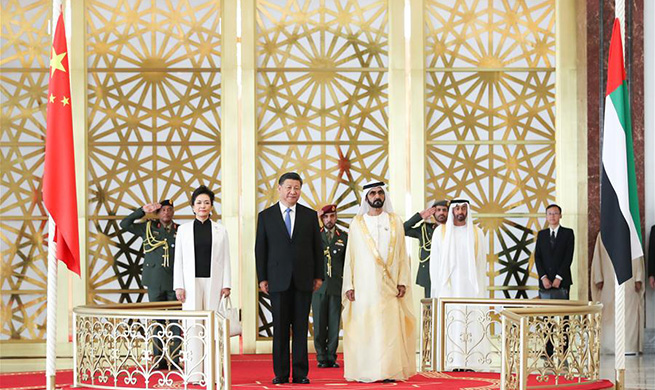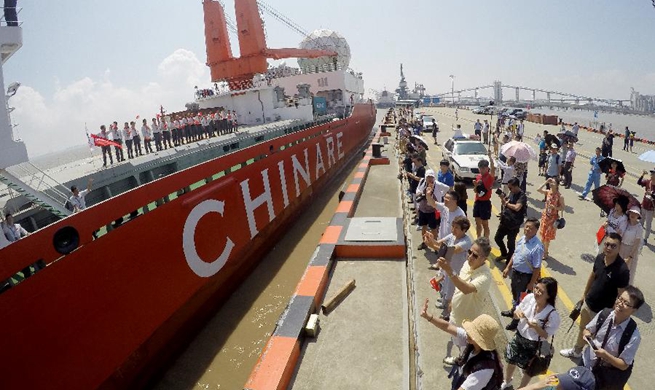ANKARA, July 20 (Xinhua) -- Turkish and American officials on Friday started to discuss forthcoming U.S. sanctions against Iran, as Turkey is one of the main importers of Iranian oil.
U.S. Assistant Secretary for Terrorist Financing Marshall Billingslea has met with Turkish Foreign Ministry, treasury and central bank officials, as well as Turkish companies having trade with Iran during two-day of talks in capital Ankara.
"What we discussed with Turkish government are potential implications for Turkish companies and Turkish economy to take different measures," Anadolu Agency quoted the U.S. official as saying on Friday.
Turkish Foreign Ministry said that the upcoming sanctions on Iran are of importance for Turkey.
"Our relevant authorities are carrying out necessary work for Turkey not to be negatively impacted by the upcoming sanctions. In this regard, we are holding consultations with our American counterparts," said the ministry in a written statement.
"Iran is an important neighbour for Turkey, in view of both our bilateral economic and commercial relations as well as our energy imports. Therefore, we will continue to monitor U.S. sanctions within this framework," said the Turkish ministry.
U.S. President Donald Trump announced on May 8 that Washington would withdraw from the Joint Comprehensive Plan of Action (JCPOA), which was put into effect on January 16, 2016, and sanctions on Iran would be reimposed.
However, the Turkish leadership defied cutting off trade with Iran and criticized the United States for its wrongdoing.
"Iran is a good neighbor and we have economic ties. We are not going to cut off our trade ties with Iran because other countries told us so," Foreign Minister Mevlut Cavusoglu said last month, saying Ankara was not obliged to abide by "unilateral" U.S. decisions.
He accused the United States of acting over the "manipulation" of Israel and warned that isolating a country like Iran is a mistake.
Turkey is dependent on imports for almost all of its energy needs, and neighboring Iran is one of Turkey's main sources of oil and natural gas imports.
Turkey purchased more than 3 million tons of crude oil from Iran, almost 55 percent of its total crude supplies in the first four months of 2018, according to data from the Turkish energy watchdog (EPDK).
Last week, U.S. Treasury Secretary Steven Mnunchin said that his country will consider waivers for countries that need more time to wind down their oil imports from Iran.
"We want people to reduce oil purchases to zero, but in certain cases if people can't do that overnight, we'll consider exemptions," Mnunchin told reporters on July 13.
The United States is sensitive about implicating sanctions on Turkish economy, but it is early to talk about any exemptions for the case of Turkey, Billingslea said.
He called on the Turkish companies and banks to use 180 days before the sanctions get full effect to wind their business down and warned that if those companies continue to do business with the Iranians in the prescribed areas, that they will not be able to do business in U.S. market or in U.S. financial system.
The first of major sanctions will be imposed in the beginning of August and then the sanctions on oil trade and central bank of Iran will get effect in November, he said.
The previous U.S. sanctions on Iran caused tension between two NATO allies, as Turkish officials and a Turkish-Iranian gold trader Reza Zarrab were accused by U.S. side of using fraudulent gold and food transactions to help Iran evade sanctions between 2010 to 2015.
A former Turkish state-owned Halk Bank banker was sentenced in May to 32 months in a U.S. prison for plotting to help Iran evade American sanctions.
When recalled the case of Turkey, Billingslea said new treasury sanctions will be enforced "very aggressively and very comprehensively" than the previous experience.
"It would certainly be a very bad idea to think that when somebody is going to trade with Iran in gold and avoid U.S. actions," he added.

















